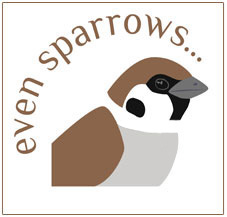

LEARNING FROM THE STORK
Posted: 21.06.24 in Articles category
Storks are in the news again. On 13 June the BBC announced that White Storks have bred in record numbers at Knepp Castle in West Sussex with 40 young expected to fledge this summer. They were re-introduced at Knepp in 2016 and breeding first confirmed there in 2020 when 2 pairs reared 4 chicks. From those small beginnings there is now a colony with as many as 80 adults, and there is hope of storks becoming established across southern England after a 600 year absence.
I was in Lithuania at the start of June and white storks seemed to be everywhere – feeding in fields and nesting on buildings or purpose-built platforms. The country has ideal habitat for these birds and allegedly has the highest known nesting density of this species anywhere in the world. Not surprisingly, it’s their national bird and people seem keen to protect them. Lithuanians believe that storks bring harmony to the families on whose property they nest, and they have also kept up a wider European tradition of telling their children that storks bring babies. Stork Day is celebrated on March 25 with various archaic rituals: gifts for children, attributed to the storks, such as fruits, chocolates, pencils, and dyed eggs, are hung on tree branches and fences; snakes are caught, killed and buried under the doorstep; straw fires are lit.
Recent academic research has demonstrated that migrating storks learn by experience. Some 250 storks in southern Germany and Austria were tracked on migration between 2013 and 2020 and their migratory routes were recorded. Moreover, the timing, speed and estimated energy used during flight was measured for every bird involved. What the findings showed was that younger storks switch from exploring new areas during migration to taking faster and more direct migratory routes as they gain experience, and that older birds appeared to stop exploring new routes altogether. During spring migration, the storks often took shortcuts, which suggests they used spatial memory to take the best route.
I don’t think it’s surprising that storks, other birds or indeed all kinds of creatures learn from experience. Yet it’s counter to the notion that they act entirely on instinct or through genetic ‘hard-wiring’ (whatever that may be!). To me this research is yet another indication that birds and other animals have greater cognitive abilities than we have chosen to presume in the past, dismissing them as ‘dumb animals’ which exist for us to exploit. If only we could talk with them…
It seems that storks learn from their experiences during migration. We should learn from them too, according to the prophet Jeremiah. He noted that storks knew when it was their time to migrate, however by contrast the people of Judah didn't know it was their time to repent as the prophet lamented. "Look at the birds and learn".